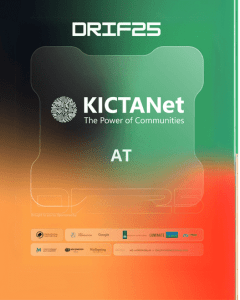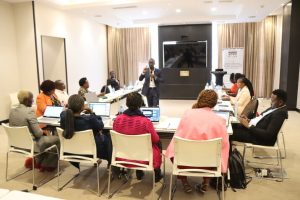The International Day of Persons with Disabilities underscores the importance of promoting the rights and well-being of people with disabilities.
This year’s theme of “amplifying the leadership of people with disabilities for an inclusive and sustainable future,” aligns with the goal of KICTANet’s Disability Program.
As a leading voice in ICT policy, KICTANet is committed to amplifying the leadership of persons with disabilities and ensuring their digital inclusion.
In September 2022, KICTANet launched the ICT Access and Equality for Persons with Disabilities Fellowship.
Today, KICTANet remains one of the most outstanding mainstream organisations with disability across all its programming, and has been at the forefront of championing digital rights.
KICTANet’s Disability Program
KICTANet’s Disability Program has made significant strides in advancing digital accessibility and equity for persons with disabilities in Kenya. The program, co-led by individuals with disabilities, focuses on: advocacy, research and capacity building.
One notable outcome was the launch of an Accessibility Scorecard to assess the accessibility of government websites, influencing digitalisation efforts from the government.
Two, our study on Best Practices For The Digital Inclusion Of Persons With Disabilities In Community Networks highlights the challenges faced by persons with disabilities in accessing digital technologies, especially those with multiple and intersecting disabilities.
The study identified several barriers to digital inclusion for persons with disabilities, which include widespread misconceptions about their needs and capabilities, as well as a limited understanding of diverse and intersecting disabilities, such as invisible or multiple disabilities.
Assistive technologies often cater to single disabilities, leaving many with complex needs underserved. Training opportunities remain scarce, with technical jargon and language differences creating further obstacles to engagement.
KICTANet’s Digital Accessibility for Persons with Disabilities actively engages with policymakers, regulators, and other stakeholders to advocate for inclusive ICT policies. In addition, it provides training and support to persons with disabilities to enhance their digital skills and knowledge.
The Road Ahead
As we move forward, it is crucial to continue amplifying the voices of persons with disabilities and ensuring their meaningful participation in the digital age. The government can play a role by:
Establishing a National Digital Accessibility Committee: This committee would oversee the implementation of accessibility standards and guidelines.
Investing in Assistive Technologies: Providing affordable and accessible assistive technologies can empower persons with disabilities to fully participate in the digital world.
Promoting Inclusive Digital Literacy: Creating awareness and training programs to enhance digital literacy skills for persons with disabilities.
However, it remains a collective responsibility to ensure that digital platforms are accessible to everyone.
![]()




